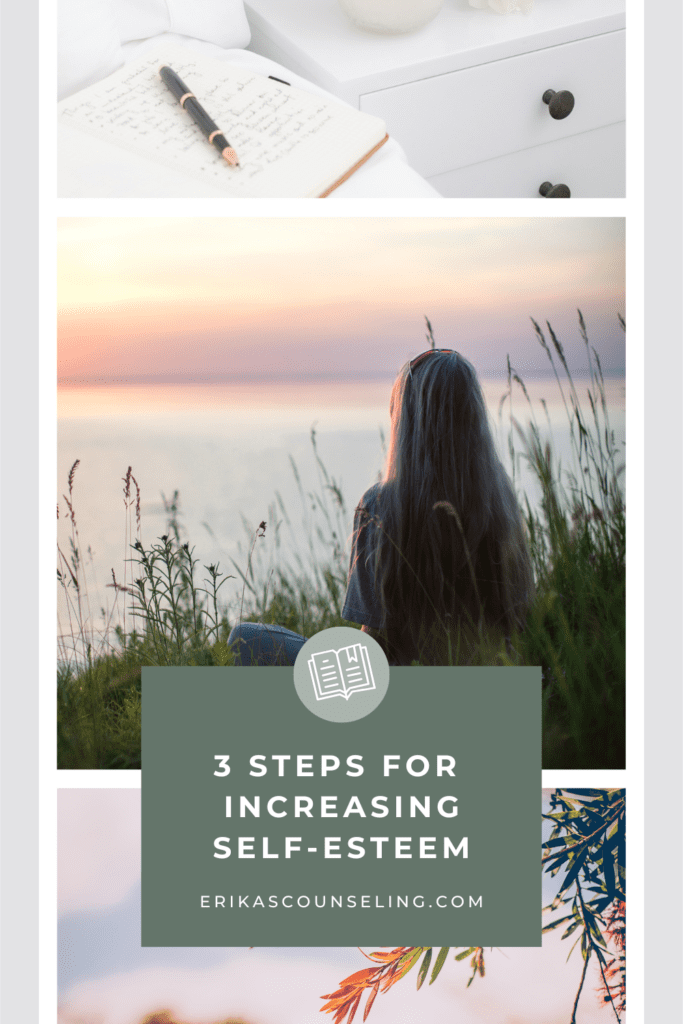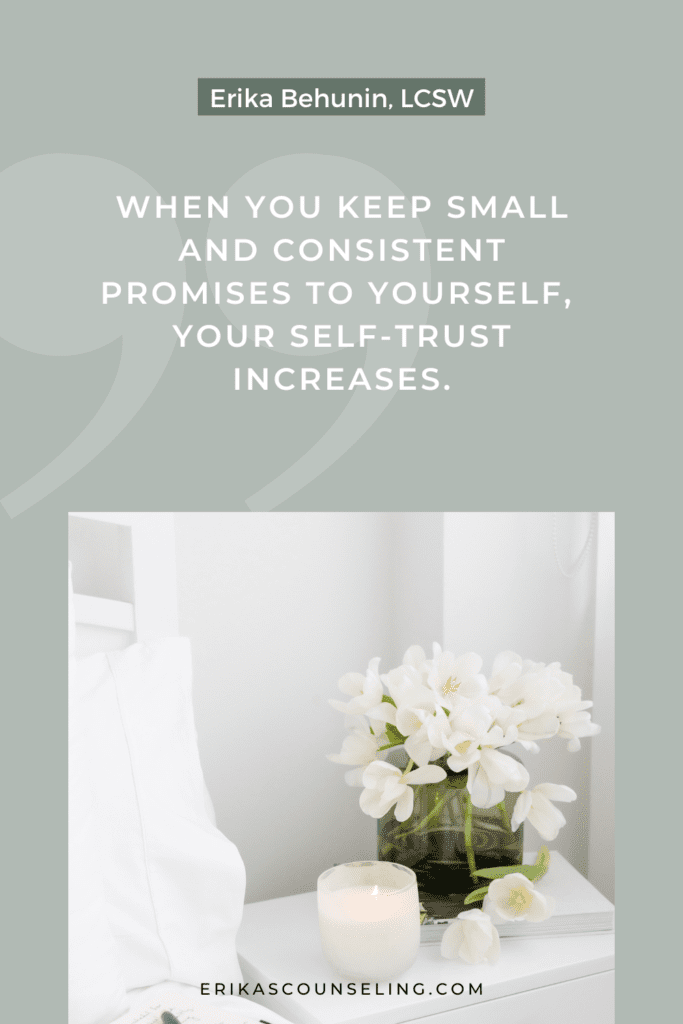The definition of self-esteem is confidence in one’s worth or abilities; self-respect (Merriam-Webster Dictionary). Self-esteem is your cognitive and emotional sense of self. It is a lens in which you filter your experiences. How you think, feel and act … how you interact in relation to yourself and to those around you. It may be easy to think that those who are very successful on the outside, those who may have a long list of awards, wealth, achievements, or degrees may experience a great deal of self-esteem. However, this is not always the case. Many appear “successful and confident” on the outside and in reality are suffering inside. They may have a low internal sense of self-worth and self-respect.

Attempting to build your self-esteem from the accolades of others may feel good in the short term, but in the long run may be an unfulfilling race. The good news? Self-esteem can be built and cultivated.
The following three tips provide a starting point in constructing durable self-esteem.

1). Become Aware of Your Inner Critic:
From a young age you develop a set of core beliefs, which in turn influence that way in which you view yourself, others and the world at large. Core beliefs can be both negative and / or positive in nature, depending on your life experiences and early childhood attachments. An inner critic is often developed throughout life … a voice that may frequently critique, telling you you are not good enough, not loved enough, not worthy enough, not smart enough … you may have learned to be highly self-critical. Your standards may be set unrealistically high. Through a negative set of core beliefs, negative automatic thoughts are formed. Your thinking impacts your sense of self and confidence. The first step is to become aware of your inner critic … begin to notice when it is speaking. Once you are aware of your inner critic and negative automatic thoughts you can begin to challenge them. You don’t have to believe them! The goal is not to get rid of your inner critic. That is likely never going to happen. The goal is to learn when to listen and when not to listen. The goal is for YOU to be in the driver’s seat making decisions for your life, rather than the voice of your inner citric. Some of the most successful people report having an inner critic, yet they have learned when not to listen.
Helpful Tip:
Think of yourself as being in charge of a remote control. When you notice your inner critic taking over, you acknowledge it, recognize it for what it is, and then you get to grab your remote and change the channel!

2). Keep Small and Consistent Promises to Yourself:
A key component of self-esteem is learning to trust yourself. To know that you have your own back and will show up for yourself no matter what. You get to be your own biggest cheerleader. Confidence and self-esteem are cultivated through DOING, it involves taking action. When you allow your inner critic to make choices for you, you begin to close many doors and opportunities become limited. The goal is to set a challenge for yourself. What is something that you have been wanting to do, but have been too afraid? What is something that you could do that would slightly push you out of your comfort zone? Works towards your goal in baby steps. Be aware of all or nothing thinking. The change happens in the process and in the effort, not necessarily the outcome. It is the courage to stretch yourself, to expand, and to practice a growth mindset.
3). Clarify and Live in Alignment With Your Core Values:
When you live out of alignment with your core values resentment, anxiety, depression, frustration and burnout are likely to become common companions. Identifying and realigning your life choices with your core values is an important step in building self-esteem and self-trust. Simply, begin by asking yourself, “What is important to me?” What do I value?” You may consider different domains of your life, such as, Family, Occupation, Parenting, Relationships, Physical, Mental, Emotional and Spiritual Health … and consider if any of your values are out of alignment in your various life domains.
As you are working toward building greater self-esteem remember that you are already worthy just as you are. As you become more aware and conscious it is important to practice self-compassion along the way. Become a loving, kind friend to yourself. Lasting change does not come through shame and harshness.
“If you don’t love yourself, you cannot love others. You will not be able to love others if you have no compassion for yourself, then you are not able of developing compassion for others.” – Dalai Lama
Remember there is help. There is hope.
Posts are for educational purposes only. Not a replacement for professional help.
